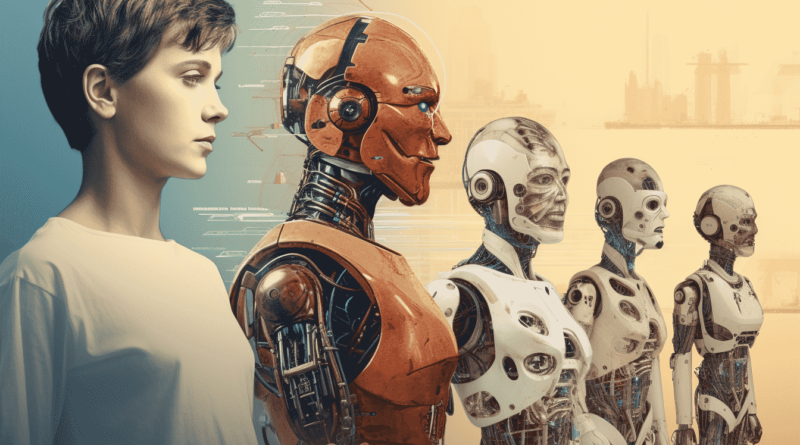A Journey Through Time: The Evolution of Artificial Intelligence
A Journey Through Time: The Evolution of Artificial Intelligence
Artificial Intelligence (AI) has become a staple of our everyday lives, driving innovation and reshaping numerous industries. But how did we get here? Let’s take a journey back in time to explore the intriguing history of AI, from the birth of the concept, passing through the first neural networks, to the present day.
Early Concepts and The Birth of AI (1940s – 1950s)
The seeds of AI were sown during World War II with the development of programmable computers. Notably, British mathematician Alan Turing’s work laid the foundation for computational theory and artificial intelligence. He proposed the idea of a “universal machine” that could perform calculations of any complexity if they were presented as algorithms, which later evolved into the modern-day computer. In 1950, Turing proposed the now-famous Turing Test to measure a machine’s ability to exhibit intelligent behavior equivalent to, or indistinguishable from, human intelligence.
AI as a distinct field was born at a conference at Dartmouth College in 1956, where the term ‘artificial intelligence’ was coined by John McCarthy. The early pioneers – Marvin Minsky, Allen Newell, Herbert Simon, and John McCarthy – believed that AI could perform any intellectual task that a human being could do and set out on an ambitious journey to explore this potential.
Early Enthusiasm and the First Winter (1960s – 1970s)
The early years of AI were filled with optimism, and progress seemed fast-paced. During the 1960s, we saw the development of the first problem-solving program, or ‘expert system’, known as Dendral. However, by the 1970s, the limitations of these early AI systems became clear. Progress was much slower than initially anticipated, leading to reduced interest and funding – a period known as an “AI winter.”
Revival and the Rise of Machine Learning (1980s – 1990s)
The 1980s brought a revival of interest and funding in AI, particularly around expert systems. The period also saw the rise of machine learning, an AI approach that focuses on the development of algorithms that allow computers to learn from and make decisions or predictions based on data. This era introduced the concept of neural networks, computer systems vaguely inspired by the biological neural networks that constitute animal brains. Despite the initial promise, by the late 1980s and early 1990s, AI entered another winter due to inflated expectations and the high cost of AI systems.
AI Comes of Age (2000s – Present)
The 21st century marked a significant turning point for AI. Rapid advances in technology and the explosion of data led to a renaissance in AI research and applications. The development of more sophisticated machine learning techniques, particularly ‘deep learning’ neural networks, enabled significant progress in tasks like image recognition, natural language processing, and game-playing algorithms.
In 2011, IBM’s Watson marked a significant achievement in AI when it defeated human champions on the television quiz show “Jeopardy!”. In 2016, Google’s AlphaGo, powered by DeepMind, shocked the world by defeating a world champion Go player – a feat previously thought to be decades away due to the complexity of the game.
Today, AI is an integral part of many technologies and services we use daily, from search engines to voice assistants, from healthcare diagnostics to personalized entertainment recommendations.
Conclusion
The journey of AI from a fledgling concept to an integral part of our society has been marked by periods of intense optimism, winters of disillusionment, and phases of mature development. As we stand on the cusp of a future where AI holds immense potential to further revolutionize our world, it’s more crucial than ever to navigate its development responsibly. Understanding its history, we can better anticipate the challenges and opportunities that lie ahead on the path of AI’s evolution.
The history of AI is not just a story about technology, but a testament to human curiosity, innovation, and the relentless pursuit of knowledge. As we move forward, the torch has been passed to a new generation of thinkers and doers, who will undoubtedly write the next exciting chapter in the history of AI.
